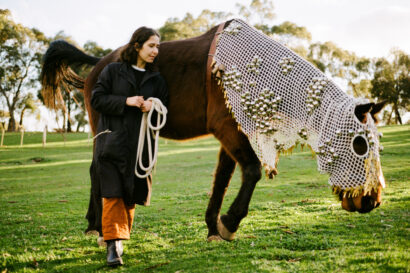This week Mark Naglazas catches up on the classics, sharing seven movies that remind us of beauty, speak to our present moment, and distract us from the horrors around us.
A movie a day…
30 March 2020
- Reading time • 10 minutesFilm
More like this
- Portrait of the artist as a complex man
- The great unknown
- Darkness lights the way
If the historic disruption of the cinematic supply chain has a silver lining it’s that film buffs can now take a breather. We can catch up on classics we’ve missed, give old favourites a second look and finally get around to those celebrated new-ish movies we never got around to seeing because we were so consumed by the latest blockbuster or de rigueur arthouse sensation.
In other words, being yanked out of the revolving door of new releases has turned us all into curators of our socially isolated festivals and lone explorers of outer reaches of the cinematic universe (we’ll leave television for another day).
Since the closure of movie palaces I’ve dived into Hollywood of the 1950s where the polish of studio filmmaking collided with the social and psychological realism of the post-war years; revelled in the explosion of filmmaking in France of the 1960s that injected sheer joy into movies; reconnected to the unmatched American cinema of the 1970s (SBS World Movies mini-fest has had me glued to the couch); and reconnected with top-drawer late-career Woody Allen and was surprised by how much I enjoyed his disdained 2006 comic fantasy Scoop (the virus has upturned the world so why not our attitude toward entertainment?).
In general, I’ve sought out movies that made me smile, moved me and helped me forget for a couple of hours the dismal state of the world (those looking for recommendations for dystopian feel-bad flicks please look elsewhere).
A note before we begin: next to each film I’ve listed its availability on the most popular of the streaming services. However, many are available on one-off services such as iTunes, Google Play and YouTube. A quick google search should give you all the options.
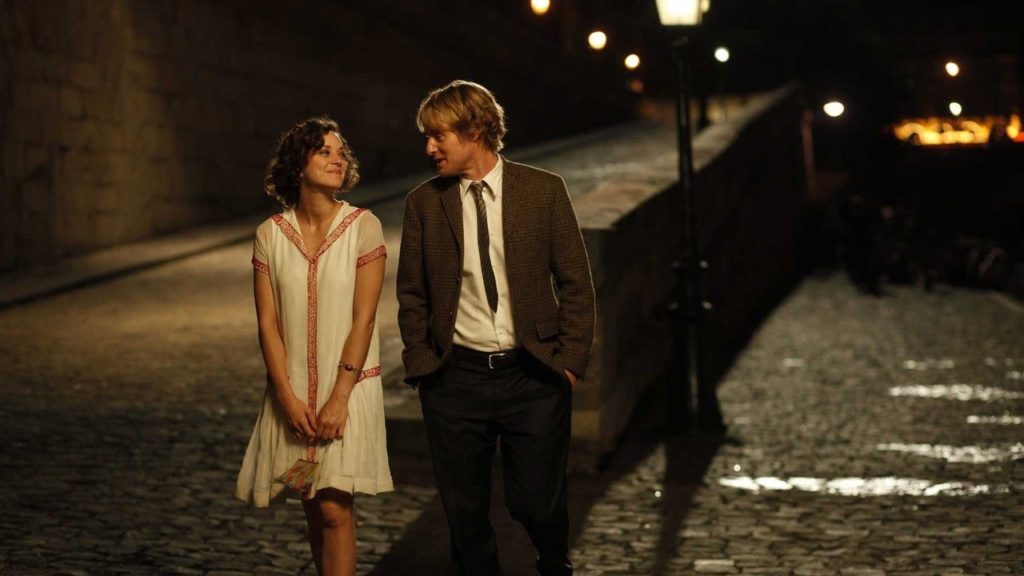
Midnight in Paris (Netflix)
If you’re seeking escape during the pandemic it’s hard to imagine a more perfect vehicle than Woody Allen’s 2011’s fizzy comic fantasy about a Hollywood screenwriter named Gil Pender on holiday in Paris (Owen Wilson) who’s so dissatisfied with the banality of present reality that he time travels back to the Jazz Age. Each night he abandons his fiancé (Rachel McAdam) to party with Scott and Zelda Fitzgerald, talk literature and boxing with Ernest Hemingway and slug it out with Pablo Picasso for the affection of Marion Cotillard’s free-spirited art groupie. Allen’s cherished smarty-pants comedy is on full display in Midnight In Paris, with each of Gil’s encounters with modernist masters as funny as anything in his storied career. Gil tells his unbelievable story to Salvador Dali, Luis Bunuel and Man Ray, all of whom have no trouble swallowing it because they’re surrealists. When he tells T.S. Eliot where he comes from they measure out their lives in cocaine spoons. But it’s not all lightweight laughs. The thesis — that every era believes that things were better in the past — is played out beautifully and wisely. It also speaks to our present awful moment, reminding us to appreciate the beauty of our own increasingly fragile age.
The Meddler (SBS World Movies)
The enormous talent of Susan Sarandon is showcased in Lorene Scafaria’s 2015 warm and funny comedy about a lonely New York widow’s struggle to make a new life in the orbit of her increasingly annoyed Hollywood screenwriter daughter Lori (Rose Byrne). When Lori goes to New York for her new series Sarandon’s inserts herself into the life of her daughter’s friends, even paying for one of their weddings. The Meddler sounds like a set-up for a broad comedy full of cheap shots. However, Scafaria has given us one of the sweetest, most understanding portraits of the plight of an older women in memory as Marnie both transforms the lives of people she comes across — she turns out to be a bit of a fairy godmother — and embarks on a tentative relationship with a laid-back, chicken-loving retired cop (the great J.K. Simmons doing his best Sam Elliott impression). The camera is rarely off the face of the ageless Sarandon, who communicates so many emotional states just through her looks and awkward smiles that we know exactly what is going on inside her head and heart without her once talking about it.
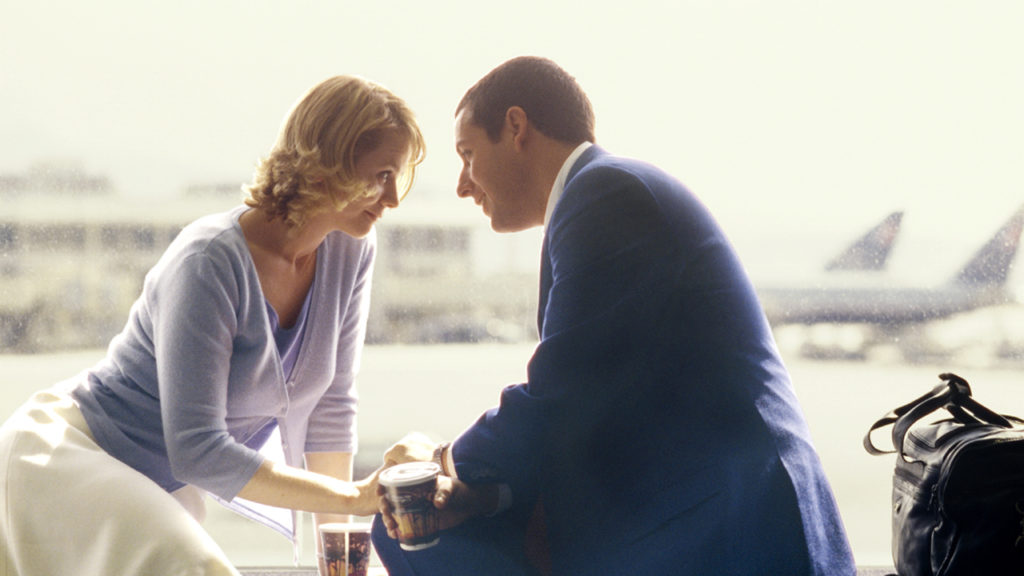
Punch Drunk Love (Stan)
Adam Sandler is now widely regarded as a fine dramatic actor, so much so that many were annoyed he didn’t get an Oscar nomination for Uncut Gems (Netflix). But when Paul Thomas Anderson cast him as the lead in the follow up to his 1999 masterpiece Magnolia the film world was agog. How can the heir to Robert Altman and Stanley Kubrick be working with giggling man-child who appeals to the lowest common denominator? Anderson, however, is the great visionary maverick of American cinema and drew from Sandler an amusing, surprisingly touching pent-up performance as a lonely entrepreneur with anger management issues that would force the world to see him differently. Sandler’s wonderfully implosive acting is backed by a startling intrusive nerve-jangling score by Jon Brion that sets the tone for an oddball indie-spirited romantic comedy that breaks just about every rule of the genre going except winning our hearts.
Searching for Bobby Fischer (SBS World Movies)
This rare directorial effort by arguably the greatest screenwriter in contemporary American cinema, Steve Zaillian (Schindler’s List, Moneyball, The Irishman), is one of the most underrated films of the 1990s and deserving of its listing in the American Film Institute’s top 100 most inspiring films in history. It is the true-life tale of chess prodigy Josh Waitzkin (Max Pomeranc) who is encouraged by his hard-arse instructor (Ben Kingsley) to pursue mastery of the game with the relentless drive and aggression of the fabled Bobby Fischer. In a decade of experiment and boundary pushing (Tarantino, Fincher, the two Andersons) Zaillian delivered a masterclass in Hollywood classical storytelling, with Conrad Hall (In Cold Blood) framing and shooting every scene with the eye of a true artist (the movie is breathtaking in every technical department). As this tale of a child battling to weigh up various influences on him (Joe Mantegna’s fame-hungry dad, Joan Allen’s sensitive, concerned mother, Kingsley’s Fischer-obsessed mentor) moves toward a wrenching climax it will have you on the edge of your couch. A truly great, underappreciated movie. And best of all — it’s free.
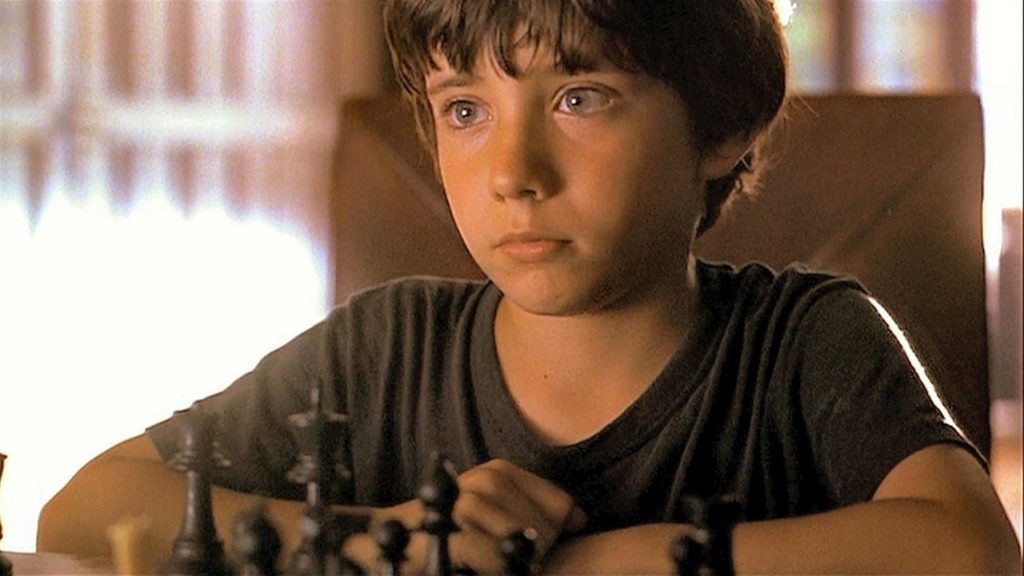
The Artist (Stan)
French writer-director Michel Hazanavicius’ black-and-white silent comedy hasn’t had much love since beating The Descendants, Hugo, Midnight in Paris, Moneyball and The Tree of Life at the 2012 Oscars (a hell of a year). It’s regarded as a trifle and derivative, with Kim Novak attacking Hazanavicius for stealing Bernard Hermann’s Vertigo theme. But I have adored The Artist since first seeing this stunningly conceived, beautifully photographed and marvelously acted tale of a strutting silent movie star’s failure to adapt to the coming of sound. The wonderful joke of The Artist is that while it’s about the passing of silent cinema it is itself an gorgeous example of the form, a reminder of how expressive black-and-white non-speaking movies were in the age of Chaplin, Keaton and Garbo. But it is not just silent film that The Artist references. There are nods to Sunset Boulevard, Citizen Kane and all of Hitchcock. Jean Dujardin won the Oscar for playing this loveable boofhead whose fall from grace sends him on a path to maturity, both as a man and artist, and it was richly deserved. He’s hilariously shallow at the beginning and brings real depth as his career unravels. The Artist is a glorious movie — funny, touching, wildly imaginative, deeply romantic— and will for a couple of hours make you forget the awful reality surrounding us.
Separate Tables (iTunes)
Even though I’d been blown away by big-screen adaptations of Terence Rattigan’s The Browning Version, The Winslow Boy and The Deep Blue Sea I’d somehow never seen Separate Tables, the 1959 multiple Oscar nominee based on two of his plays. Quite simply, it is never in the conversation alongside other sophisticated 50s classics such as Sunset Boulevard and All About Eve. What an oversight! Separate Tables is a work of striking power and startling insight, an old-fashioned drama set in a seaside boarding house that deals so frankly with issues such as sexual harassment and domestic violence you have to keep checking on the year it was made. It stars David Niven as a former British army officer who has been named and shamed as a sexual predator. Not surprisingly, most of the residents turn against Niven’s pathetic liar. But he finds sympathy from an American couple (Burt Lancaster and Rita Hayworth) who have their own problems and are understanding of human frailty. Separate Tables would probably annoy many viewers today because of its deeply humane treatment of the Niven’s emotionally crushed deviant. But Rattigan, a man who himself suffered under the shackles of conservative British society, understands what sexual and social repression does to the soul. This is a haunting, uplifting work — Noel Coward by way of Tennessee Williams with a whiff of Kitchen Sink drama — and will appeal to those who crave a beautifully written and acted adult drama.
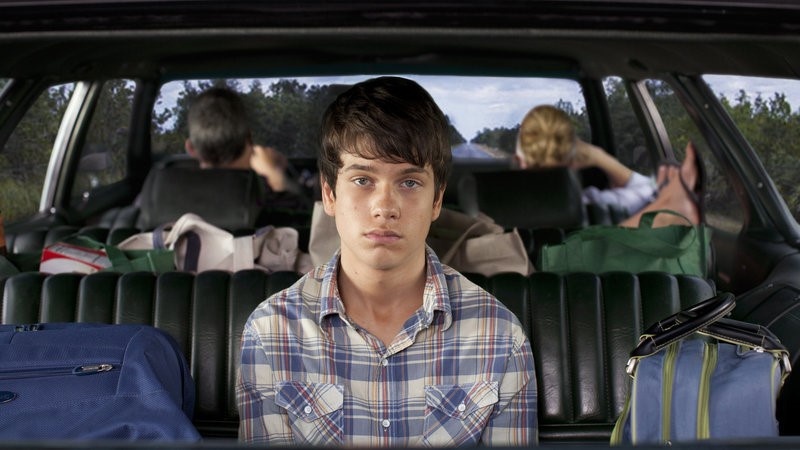
The Way, Way Back (iTunes)
The writing and directing team of Nat Faxon and Jim Rash (best known for co-authoring The Descendants with Alexander Payne) spent many years trying to make this coming-of-age comedy set in a small beachside community in Cape Cod. The delay wasn’t a bad thing; it allowed them to hone their script to perfection and get the cast just right. The story is centred on an awkward teenager named Duncan (Liam James) who goes on a summer holiday with his fragile, needy mother (Toni Collette) and her abusive new boyfriend (Steve Carell). Duncan finds refuge in a water park and the friendship of a slacker motor-mouth (Sam Rockwell), who is a striking contrast to his nasty, judgmental father-to-be. Faxon and Rash (both actors) write funny but never forced dialogue and beautifully calibrated comedy scenes, especially those around the giant mettle-testing water slide, and they tease out beat-perfect performances from a great cast, headed by the wondrously versatile Rockwell (just about my favourite actor today).
Mark Naglazas surveys the effect of the Covid-19 pandemic on the West Australian film industry.
Pictured top: Jean Dujardin and Berenice Bejo in The Artist.
Like what you're reading? Support Seesaw.



